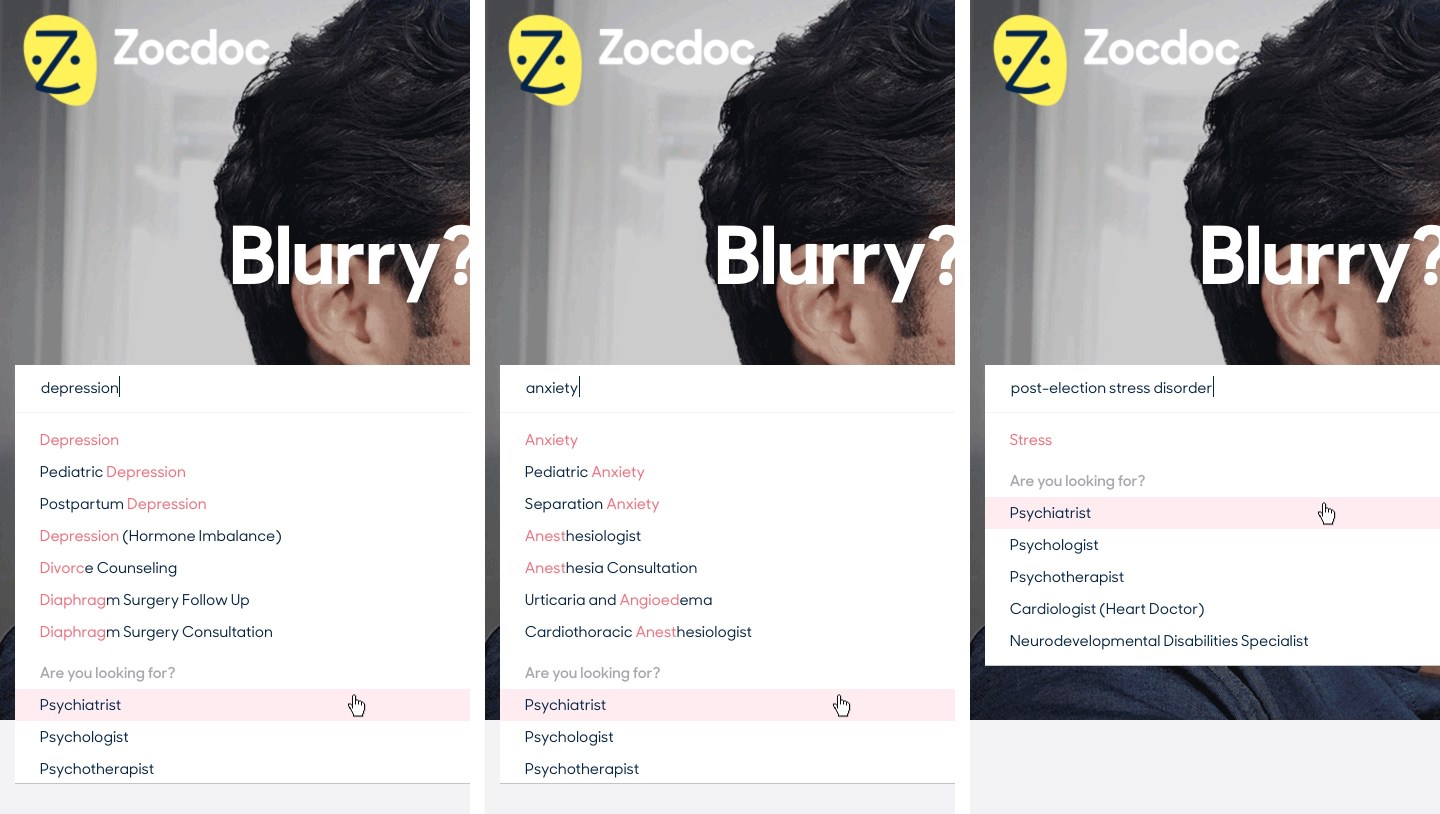Quick, off the top of your head, what’s the difference between an optometrist and an ophthalmologist? How about a psychologist and a psychiatrist? And, wait, are internists doctors who specialize in internal medicine – or just their interns?
Some well-versed readers may indeed know the answer to all three of these questions (for the record: ophthalmologists are the ones who can perform eye surgery, psychiatrists can prescribe medications, and internists are your good old-fashioned general medicine practitioners). But the complexities of medical jargon can make an already complicated U.S. health system even more convoluted for millions of people seeking care. In fact, the Centers for Disease Control notes that nine in 10 Americans struggle with health care terminology.
Click here to subscribe to Brainstorm Health Daily, our brand new newsletter about health innovations.
That’s why Zocdoc, the online doctor-locating and medical appointments platform, launched a new feature today on desktop and mobile devices that it dubs the “Patient-Powered Search.” The firm describes this new engine as a “more intuitive search experience, built specifically to bridge the gap between healthcare industry and human speak.”
The logic behind Patient-Powered Search, which harnesses AI and machine learning capabilities, is that people don’t think in terms of a medical textbook when they’re looking for a doctor to treat their ailments. But many doctor search services require that sort of precise terminology to find the appropriate physician.
Instead, Patient-Powered Search is able to decipher what it is that a patient is seeking. It forgives common spelling errors and gauges what a user’s actual intent is.
For instance, “gyno” would be understood to be OB-GYN and the misspelled “hemroids” would be mapped to hemorrhoids; searching for “anxiety” or “depression” will bring up the variety of possible medical professional who may be able to help a patient with those mental health conditions. And by constantly learning the types of real-world medical searches that people conduct, it can continually adjust to shifting trends.
This essay appears in today’s edition of the Fortune Brainstorm Health Daily. Get it delivered straight to your inbox.












